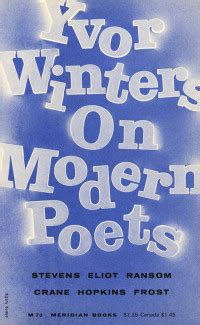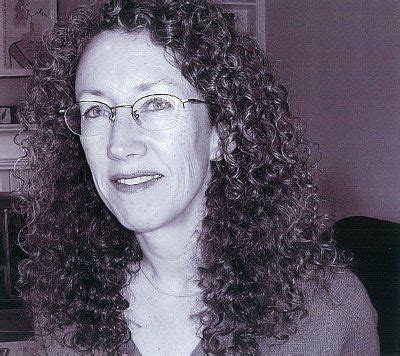A Quote by Yvor Winters
What I desire of a poem is a clear understanding of motive, and a just evaluation of feeling A poem in the first place should offer us a new perception..bringing into being a new experience Verse is more valuable than prose for its rhythms are faster and more highly organised and lead to greater compexity.
Related Quotes
I keep feeling that there isn't one poem being written by any one of us - or a book or anything like that. The whole life of us writers, the whole product I guess I mean, is the one long poem - a community effort if you will. It's all the same poem. It doesn't belong to any one writer - it's God's poem perhaps. Or God's people's poem.
I write because to write a new sentence, let alone a new poem, is to cross the threshold into both a larger existence and a profound mystery. A thought was not there, then it is. An image, a story, an idea about what it is to be human, did not exist, then it does. With every new poem, an emotion new to the heart, to the world, speaks itself into being.
Writing fiction, for me, is a more indirect form of self-exploration than writing verse. When I'm working on a novel I'm moving characters around and I'm thinking about plot and there's a lot of other things going on at the level of structure and story. With a poem, a single idea or line or emotion can sometimes be enough - there's often a sense, in the best poems, of capturing a single instant. Perhaps poems differ from prose in the degree of solace they can offer - by speaking so personally, so directly, about shared experience. A few lines of poetry can provide comfort.
There's no telling from poem to poem where this brilliant 'conversation' about maleness and gender will lead---there are poems about husbands and wives, parents and children, Elvis, Apollo, Walt Whitman, rhythms of its politics. Manthology is a remarkably honest and enormously heartening collection.





































